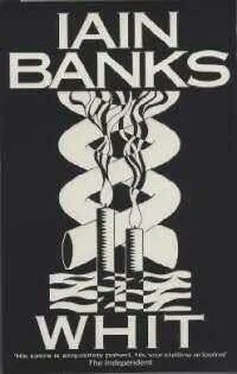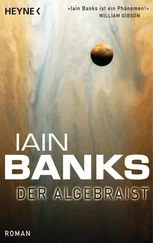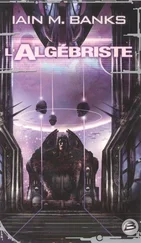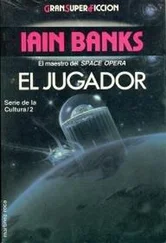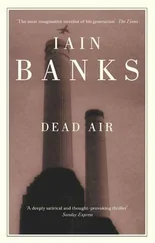Humanity had thought itself progressing, after that earlier war to end wars, only to discover, once the dust and soot had settled, that one of the world's most civilised and sophisticated nations had found no better outlet for its ingenuity than to attempt to annihilate industrially an ancient people who had probably contributed more to the world's store of learning than any other single group (and perhaps knew, too, that their own nations had colluded in the prelude to that terminal obscenity).
And what future beckoned, after this spasm of destruction and the death of any idea that Humanity was in some way rational, that Humanity, indeed, was reliably humane?
Why, only the continuation of war in another, colder form, with weapons fit for the end of the world; Allies becoming enemies and the real victors of the European war turning upon themselves and their new conquests with redoubled savagery, as though their twenty million dead had only given the apparatus a taste for it. (Meanwhile Mr Orwell, on another Hebridean island, near the whirlpool, wrote what he almost called 1948 .)
This was Mr McIlone's world, then, as was the pallid, washed-out Britain of the still-rationed late 'forties, and for all that the semi-independent croft and fishing economy of the Western Isles softened the blow of some of the shortages most keenly felt in cities on the mainland, it was still a hard, cold, windswept place, where a man lived close to land or sea with only his God, family and friends and sometimes the drink to sustain him and provide a little comfort.
Perhaps it is not so surprising, then, that Mr McIlone, brought into contact with my Grandfather's messianic, blazing certainty and the unconventional but obvious love he shared with his two exotically foreign beauties, should feel that he was missing out somewhere, that there was another retort to the world's absurdities and viciousness besides hermetic, hermit-like withdrawal.
Whatever factors, emotional, personal or philosophical, eventually produced this holy sea-change in Mr McIlone, by the end of 1949 it was complete, and our Founder had his first real convert (I don't think he ever felt his wives fully Believed, though they gave every appearance of Behaving).
He also had the run of the farm at Luskentyre, the continuing opportunity to study in its library, the use of its buildings, access to whatever funds and produce it gave rise to, and an eventually decisive say in its running. And so it was there that our sect, the True Church of Luskentyre, made its first home, from 1949 until 1954, when Mrs Woodbean gifted us the estate at High Easter Offerance, on the green and ancient flood plain of the river Forth, far to the south-east of those wild isles.
* * *
'Well, it smells like that liniment stuff me mother used to slap on us soon as we coughed out of turn,' Dec said, flopping into a huge cushion on the floor beside me.
I had partaken of the precious zhlonjiz unguent some hours earlier, in my loft bedroom, shortly after Zeb and I had made our way back to Kilburn from the South Bank (happily this required no changes of Underground train line). I had pulled up the loft ladder and closed the loft door, placing the ladder on top of it. I removed all my clothes save for my knickers and sat in the lotus position, meditating for some time beforehand. A cup of water I'd brought from the bathroom sat to one side, a scented Order candle to the other.
I struggled to open the tiny jar; the cap gave an audible crack when it finally turned. The sharp, spicy salve inside was black in the candlelight. I took a little of the thick dark cream on my little finger and placed some on my forehead, some behind my ears and some on my belly-button. I slipped the rest into my mouth, scraping it off against the back of my teeth and quickly swallowing it. I washed it down with the cup of water; the gritty black cream burned my tongue and the roof of my mouth as it slid down my throat.
I coughed and my nose ran and the fierce dark smell of the stuff seemed to surround me, fiery and raw and dissolving, reeking of a mountainous, half-mythical East. I sniffed back, breathing deeply to suffuse my being with the magical balm, relaxing and trying to let my soul open to the voice of the Creator, attempting both to ignore the vast city and its millions of Cluttered, Unsaved souls, and at the same time to use their untapped, ignorant capacity for Receiving to focus the signals of God upon myself.
In short, it did not work. I waited for the blink of an eye and the life of an old God, I waited until the next heart beat and the next Ice Age, I waited for the merest whisper of murmured acknowledgement and the erupting scream of God at last losing patience with us all; I waited long enough for the candle to flicker and go out, my legs to grow sore and my skin to prickle with goose-bumps.
Eventually I opened my eyes and stared into the darkness, aware of an edge of light round the sides of the loft door and the vague buzz of voices and smell of food drifting up from downstairs. I lowered my head and might have wept, until I rebuked myself for such self-pity, and told myself that - if fault there was - it was my own, and I had nobody else to blame. I sniffed, rose stiffly and dressed, tidied things up and lowered the wooden ladder through the opened loft door.
'What liniment?' I asked Declan.
'I dunno,' he said, lighting a small roll-up cigarette. 'Some stuff. She just called it "Di lineament" and dabbed the damn stuff on us at every opportunity; worst was when you had the toothache; stung like hell; worse than the toothache.'
'I thought it smelled like coriander,' said Roadkill, who was rolling one of their drug cigarettes. We were all - save for Scarpa - in the living room, listening to some modern CD music on the hi-fi. I had eaten after the others, having missed the main meal while I was attempting to Receive. I had, perhaps misguidedly, attempted to explain to the others what I had been trying to do in the loft; probably I ought not to have mentioned the zhlonjiz at all. Roadkill at least seemed sympathetic. Brother Zeb, also now rolling what they called a 'number', seemed to be ignoring me.
'Dec,' Boz said, stretching his hand across me to offer Declan the drug cigarette which was currently in circulation.
Dec seemed to hesitate, and Boz offered the long white tube to me. 'Hey, Isis, child; you want to try the holy ganja instead?'
I looked at it. 'I'd probably just cough,' I told him, though I was thinking about it. Our creed holds no thing wrong just because the Blands say it is, and from what I had heard both at school and from various people at the Commune, cannabis was a benign, if befuddlingly distracting drug. Indeed, I felt much more discomfited by the presence of all the electrical activity around me than I did by the haze of smoke that hung in the room.
'Ah, go on with ye,' Declan said.
'Very well,' I said, and exhaled to the bottom of my lungs. I reached out for the drug cigarette, but Boz moved it away out of reach.
'Hey, don't take too much there, Isis; you'll give youself a coughing fit, sure enough. You just breathe in gentle-like.'
I breathed in, looking up at Boz, who was sitting on another giant cushion. (I, of course, was on the wooden floorboards). I took the long cigarette and sucked on it, not too hard.
'…. Easy now, Isis,' Boz said, as I gulped and tried not to cough, and handed the thing quickly on to Declan. I exhaled and took another few deep breaths, cooling my fiery throat (at least the cannabis had that in common with the zhlonjiz ). 'You all right now, Isis?' Boz asked, looking at me. I nodded. I rather liked the way Boz said 'I-sis'; slowly and deeply with the emphasis on the 'sis'.
'Fine,' I said, with only the smallest of coughs.
Читать дальше
